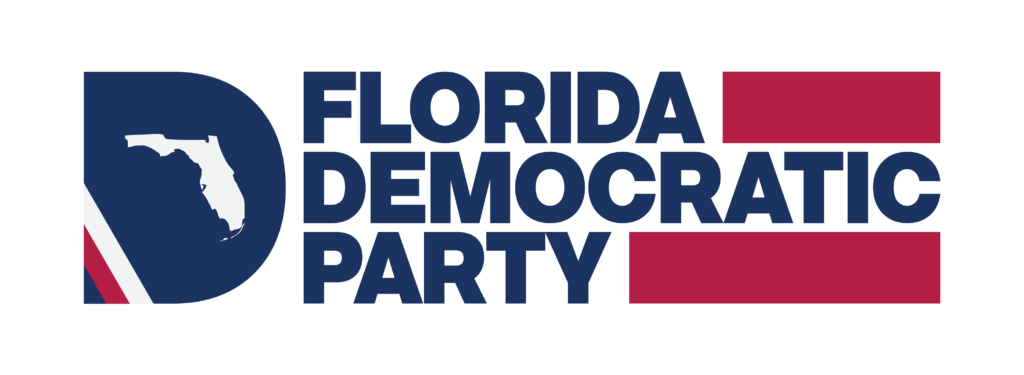In the News
Marco Rubio And Rick Scott Double Down On Opposition To Infrastructure Investment While Floridians Learn It Will Lead To More Jobs And Safer Roads


The bipartisan Infrastructure Investment And Jobs Act will be a major boost for Florida’s economy by creating good paying jobs across the state, repairing roads and bridges to cut commute times and save Floridians money, expanding broadband internet to every Floridian, and much more.
As Floridians learn more about how vital these infrastructure investments are for the state, Marco Rubio and Rick Scott are again putting their self-serving partisan agendas ahead of what’s best for Florida, doubling down on their opposition to the bill.
See below for recent highlights on the importance of the infrastructure bill for Florida and how Rubio and Scott were too weak to step up to support these critical investments:
- Keep in mind, this bill was crafted by the Senate, where it had strong bipartisan support, but both the Florida Senators Marco Rubio and Rick Scott opposed it and played no meaningful role in crafting it, which could explain the lone specific reference to Florida. Those are some of the potential challenges Florida faces in getting its top projects funded.
Florida Phoenix: Florida could cash in on President Biden’s infrastructure bill — if we had a plan
- How sweeping is this almost-law? It’s so good that Florida’s junior senator, Rick Scott, told CNN that the Republicans who voted against it — as he and Sen. Marco Rubio did — are likely to claim credit for at least some of the things it does.
- Gov. Ron DeSantis sneered that the bill is nothing but pork-barrel spending. But if this is pork, it’s just the kind of barbecue that Florida needs right now.
- For instance, it’s supposed to help pay for warding off cyberattacks on water supplies, such as the one earlier this year that aimed to poison Oldsmar’s population. There’s funding for building wildlife crossings, something our state animal, the frequently flattened Florida panther, sure could use. And there’s money for fixing our faulty sewage systems that keep spilling poop in our waterways.
- Perhaps most importantly, there’s money for “climate resilience,” which is code for building seawalls, raising highways, and otherwise coping with rising sea levels and other symptoms of a warming world — something we here in Florida definitely need, and quick.
WPEC: How infrastructure bill will impact Palm Beach County
- The bipartisan, trillion-dollar infrastructure bill is expected to be signed by the president early next week. It will bring billions of dollars to Florida.
- Palm Beach County spends about $20 million to upgrade our roads each year. With this new infrastructure bill, there should be $6-7 million more to go around.
- You’ll notice roads becoming easier to navigate at problem intersections and safer for everyone on four wheels, two wheels or two feet. And I-95 improvements that might not have happened for years are getting started a lot sooner.
- Both of Florida’s Republican senators voted against this bill.
WFTS: Infrastructure spending in Florida set for big influx of cash
- Florida will no doubt be near the head of the line for federal aid as the infrastructure here is in need of repair, much like the rest of the United States.
- The American Society of Civil Engineers gave Florida a C grade on its infrastructure for 2021.
- The bill received bipartisan support in Congress and Republican governors in other states have praised the passage of the bill.
- Still, every Republican Florida Congressperson and Senator voted in opposition to the bill. The bill was able to survive through several Republican members crossing party lines to help push the bill across the finish line.
WPEC: Sen. Scott invested in infrastructure as gov., but voted no on recent bi-partisan bill
- The clogged global supply chain may not be flowing freely again until next year. That’s the message from Florida Senator Rick Scott’s meeting with local industry leaders at the Port of Palm Beach Monday afternoon. But did the senator miss a chance to be part of the solution?
- Scott touted investments he made in infrastructure as governor of Florida to help keep the supply chain moving and provide well-paying jobs. But on Capitol Hill, he was one of the no votes on the bi-partisan infrastructure plan that’s now waiting for the president’s signature.
South Florida Business Journal: South Florida expects windfall from $1.2T infrastructure bill
- The $1.2 trillion infrastructure bill Congress passed is expected to jump-start major construction projects in South Florida, bringing a significant number of jobs and opportunities for local contractors.
- Miami-Dade County Mayor Daniella Levine Cava said her administration has been preparing to partner with the federal government to invest whatever money comes its way into “hundreds of shovel-ready resilience projects that also create good-paying local jobs.” “We’re ready to put these funds to work to create new opportunities for thousands of Miami-Dade residents and businesses as we build back our economy stronger than ever,” she said in a statement.
- Lisa Colon, a construction attorney at Saul Ewing Arnstein & Lehr in Miami, said the bill will create many jobs in highways and bridge construction, as well as public transportation and climate infrastructure.
###


